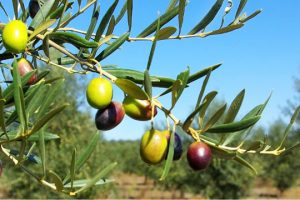Did you notice? This column has a new name and a new by-line. I thank Rabbi Eric M. Rosin for piloting this column and for nominating me to succeed him. The Jewish tradition has a funny way of making what is old new again. The political Zionists of the 19th century sought to create an altneuland (German for old-new land) and the modern city of Tel Aviv has within its name tel (a hill indicated ancient archaeological evidence) and aviv (spring and its renewal). This column will be an old-new one, continuous with Rabbi Rosin’s and cast in a new light.
There is a deep wisdom in this idea of creation with continuity. Today’s world promises planned obsolescence, constant releases of new devices, and instantaneous news. Out with the old and in with the new. The past is in the past, and tomorrow is another day. Yet, the new devices are largely tweaks of the old ones; people manage to keep some items running long after they were supposed to fall apart; and the news follows cycles. The past sticks around as we carry it like baggage, and tomorrow usually ends up looking a lot like the day preceding it. Daily life has a way of making humdrum the exciting landmarks of personal histories and turning them into the ebbs and flows in a longer timeline. Our reality gets presented much more as evolution than as revolution.
To get back to understanding the continuity of what is new with what came before, we need some perspective that shakes us out of our normal routine. You might find it odd to hear from a rabbi, but today ritual can be the problem. Ritual takes the unusual, the transitional, and the supernatural and makes it normal, cyclical, and understandable.
Did you notice, though, all those graduations? Families so proud of their children in cap and gown; the disbelief that time has flown by; and well-wishing the hope for a remarkable future. Graduation is meant to a big deal, and it should be. YouTube may show the similarities between commencement speeches across the country and across time, but it is still your student walking up and receiving a diploma. The transformation from student to graduate becomes liminal; it happens in an undefined middle space that we mediate by rituals. If the ritual becomes too familiar, we lose interest even in that which is special. Unless we have that antidote, that perspective that lets us see the mundane itself as special, we will lose the new moments in our lives. The key is to see the new and old together with awe.
Seeing the old in the new, seeing the foundation under the superstructure, and seeing the wondrous creation of today makes all the difference. To cultivate this sensibility, Jewish prayer includes the daily line: “Who makes creation anew every day.” In this thinking, each day is old and new, matching the world we might remember from before and yet entirely new. The continuity we see is the miraculous repetition of originality.
As we celebrate the many transitions that mark the end of spring and the start of summer, let us see not just new beginnings but the beauty of those beginnings being based on real achievements. Let us hold those celebrations with recognition that we are not only practicing inherited rituals, we are creating and recreating traditions. Those celebrations are our celebrations now. If we can hold onto what is amazing, we will travel forward more attuned to possibility, less anxious in transition, and happier with our every day.
About Rabbi Jeremy Winaker
Rabbi Jeremy Winaker is the executive director of the Greater Philadelphia Hillel Network, responsible for West Chester University, Haverford, Bryn Mawr, and other area colleges. He is the former head of school at the Albert Einstein Academy in Wilmington and was the senior Jewish educator at the Kristol Hillel Center at the University of Delaware for four years. Rabbi Winaker lives in Delaware with his wife and three children.


Comments